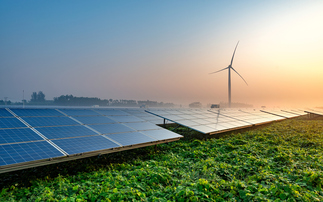Sheffield burger restaurants have cut their carbon footprint and the waste sent to landfill through a partnership with a local power plant
Fast-food multinational McDonald's may not have the best reputation amongst environmentalists, but the company emerged as something of a pioneer in the field of waste-to-energy systems last week when it announced that a biomass trial using waste from 11 of its Sheffield restaurants had cut its waste and carbon footprint in the area by half.
Under the scheme, refuse from restaurants is collected by Veolia Environmental Services and used as fuel for Veolia's Sheffield Energy Recovery Facility (ERF). The ERF is an incinerator-driven power plant that generates electricity for the National Grid and pipes hot water to civic buildings including Sheffield hospital and city hall, as well as the 11 restaurants that participated in the trial.
McDonald's said it is now working with waste contractors to roll the programme out more widely, although it warned that a lack of biomass power-plants meant that it would be some time before the model is adopted nationwide. "We continue to face significant infrastructure and planning challenges which mean that we will be unable to extend the scheme nationwide overnight," said Helen Humphrey, vice president of national operations at the chain.
As well as helping to limit its carbon footprint the initiative is also part of McDonald's commitment to send zero waste to landfill by 2010.
The result of the Sheffield trial comes as the first series of substantial landfill tax increases takes effect. From the first of April, landfill tax increased by nearly a third per tonne of waste and with £8-per-tonne increases planned for each subsequent year. Tax for 2010 is therefore set to hit £50 per tonne, which is providing a clear financial incentive for waste-intensive businesses to cut waste and look for alternative greener methods of waste disposal, said Humphrey.
After years of being villified by enviornmentalists the Sheffield initiative is just the latest in a number of projects designed to enhance McDonald's green credentials. The company said it is currently looking to renewable energy to reduce its carbon footprint across its restaurants and is working on improving materials used in the packaging of its food. It also aims to power all of its delivery fleet using sustainable biodiesel made from its own used cooking oil, by the end of this year.






